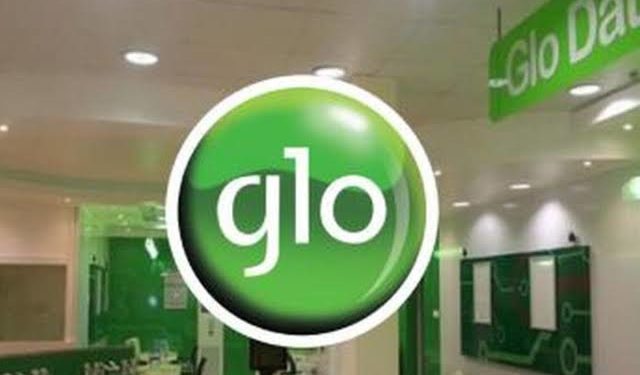On September 1, 2025, Globacom Limited, popularly known as Glo, marked its 22nd anniversary as a trailblazer in Nigeria’s telecommunications industry. The company, which launched its operations on August 29, 2003, commemorated the milestone with heartfelt appreciation for its customers, partners, and stakeholders who have been integral to its success over the past two decades. In a statement released in Lagos, Glo highlighted its journey of innovation, its contributions to Nigeria’s digital transformation, and its commitment to delivering cutting-edge services to its subscribers. This milestone offers an opportunity to reflect on Glo’s achievements, challenges, and its pivotal role in shaping the telecommunications landscape in Nigeria. This article provides an in-depth exploration of Glo’s 22-year journey, its impact on the industry, and its vision for the future.
The Birth of Glo: A Vision for Connectivity
Globacom Limited was founded in 2003 by Nigerian billionaire businessman Dr. Mike Adenuga Jr., with a vision to revolutionize telecommunications in Nigeria. At the time, Nigeria’s telecom sector was in its infancy, with limited mobile penetration and high costs for services. The introduction of the Global System for Mobile Communications (GSM) in 2001 by earlier players like MTN and Econet (now Airtel) had begun to transform the industry, but access to affordable and reliable communication remained a challenge for millions of Nigerians.
Glo entered the market with a bold promise: to provide affordable, accessible, and innovative telecom services to Nigerians across all socio-economic strata. Unlike its competitors, Glo positioned itself as a proudly Nigerian brand, emphasizing local relevance and a commitment to empowering its customers. The company’s launch was marked by the introduction of per-second billing, a groundbreaking innovation at the time, which allowed subscribers to pay only for the exact duration of their calls. This move disrupted the industry, forcing competitors to adopt similar pricing models and making mobile communication more affordable for the average Nigerian.
From its inception, Glo’s mission was to bridge the digital divide and connect Nigerians to the global information economy. The company invested heavily in infrastructure, including the Glo 1 submarine cable, which connects Nigeria to Europe and provides high-speed internet access. Over the past 22 years, Glo has grown from a startup telecom provider to a household name, with millions of subscribers and a reputation for innovation and customer-centric services.
Milestones in Glo’s 22-Year Journey
Glo’s 22-year journey is marked by numerous milestones that have solidified its position as a leader in Nigeria’s telecommunications industry. Below are some of the key achievements that define the company’s legacy:
Per-Second Billing (2003): Glo’s introduction of per-second billing was a game-changer in the Nigerian telecom market. At the time, most providers charged per minute, often resulting in higher costs for short calls. Glo’s innovation made mobile communication more affordable, particularly for low-income users, and set a new standard for pricing in the industry.
Glo 1 Submarine Cable (2011): One of Glo’s most significant contributions to Nigeria’s digital infrastructure is the Glo 1 submarine cable, a 9,800-kilometer fiber-optic cable that connects Nigeria to the United Kingdom and other parts of the world. Launched in 2011, Glo 1 has provided high-speed internet connectivity, enabling businesses, educational institutions, and individuals to access global digital resources. The cable has also supported Nigeria’s growing tech ecosystem, including startups and e-commerce platforms.
4G LTE Rollout (2016): In response to the growing demand for high-speed internet, Glo launched its 4G LTE network in 2016, becoming one of the first operators in Nigeria to offer this technology. The rollout expanded access to fast and reliable internet, enabling subscribers to stream videos, engage in online learning, and conduct business seamlessly.
Innovative Products and Services: Over the years, Glo has introduced a range of innovative products, including data bundles, value-added services, and loyalty programs like Glo Rewards. These offerings cater to diverse customer needs, from affordable data plans for students to enterprise solutions for businesses. Glo’s focus on innovation has helped it maintain a competitive edge in a crowded market.
Sponsorships and Community Engagement: Beyond telecommunications, Glo has made significant contributions to Nigeria’s cultural and social landscape. The company has sponsored major events, such as the Africa Cup of Nations (AFCON), the Nigerian Premier League, and entertainment initiatives like the Glo Naija Comedy Service. These efforts have strengthened Glo’s brand identity and fostered a sense of community among its subscribers.
Digital Transformation Initiatives: Glo has played a pivotal role in Nigeria’s digital transformation by supporting initiatives like mobile banking, e-commerce, and digital education. Through partnerships with financial institutions and tech companies, Glo has enabled millions of Nigerians to access digital services, contributing to financial inclusion and economic growth.
These milestones reflect Glo’s commitment to innovation, affordability, and customer satisfaction. The company’s ability to adapt to changing market dynamics and technological advancements has been a key factor in its longevity and success.
Impact on Nigeria’s Telecommunications Landscape
Glo’s entry into the Nigerian telecom market in 2003 marked a turning point for the industry. At the time, mobile penetration was low, with only about 2 million active lines in a population of over 120 million. Glo’s aggressive expansion and customer-focused approach helped drive exponential growth in mobile subscriptions, contributing to the sector’s transformation into one of Nigeria’s most dynamic industries.
One of Glo’s most significant impacts has been its role in democratizing access to communication. By offering affordable tariffs and innovative pricing models, Glo made mobile phones accessible to millions of Nigerians, including those in rural and underserved areas. This increased connectivity has had far-reaching effects, enabling small businesses to reach new markets, students to access online resources, and families to stay connected across distances.
The Glo 1 submarine cable has been a cornerstone of Nigeria’s digital infrastructure, providing the backbone for high-speed internet services. Before its launch, Nigeria relied heavily on satellite connections, which were expensive and prone to disruptions. Glo 1 has not only improved internet reliability but also reduced costs for businesses and consumers, fostering the growth of Nigeria’s digital economy. Today, Nigeria’s tech ecosystem, including hubs like Lagos and Abuja, owes much of its success to the connectivity provided by infrastructure like Glo 1.
Glo’s emphasis on local content and community engagement has also set it apart from its competitors. By sponsoring cultural and sporting events, the company has built a strong emotional connection with its customers, positioning itself as a brand that understands and celebrates Nigerian identity. This approach has resonated with subscribers, particularly younger audiences who value brands that align with their values and aspirations.
Challenges Faced by Glo
Despite its successes, Glo’s 22-year journey has not been without challenges. The Nigerian telecommunications industry is highly competitive, with major players like MTN, Airtel, and 9mobile vying for market share. Glo has faced criticism for inconsistent network quality in some regions, particularly in rural areas where infrastructure investment has lagged behind urban centers. Subscribers have occasionally reported issues with call quality, data speeds, and customer service, which have impacted the company’s reputation at times.
Regulatory challenges have also posed obstacles for Glo. The Nigerian Communications Commission (NCC), the industry’s regulatory body, has imposed fines on operators, including Glo, for failing to meet quality-of-service standards or comply with other regulations. For example, in 2018, Glo was among the operators fined for issues related to unsolicited messages and data billing disputes. While the company has worked to address these concerns, maintaining consistent service quality across a diverse and geographically expansive country remains a challenge.
Economic factors, such as inflation and currency fluctuations, have also affected Glo’s operations. The high cost of maintaining and upgrading infrastructure, coupled with the need to keep tariffs affordable, has put pressure on the company’s profitability. Additionally, the rise of over-the-top (OTT) services like WhatsApp and Zoom has reduced demand for traditional voice and SMS services, forcing Glo to pivot toward data-driven offerings.
Despite these challenges, Glo has demonstrated resilience by investing in network upgrades, expanding its 4G coverage, and introducing new products to meet evolving customer needs. The company’s ability to navigate these obstacles while maintaining its commitment to affordability and innovation is a testament to its strategic vision and operational strength.
Glo’s Commitment to Customers and Stakeholders
In its anniversary statement, Glo expressed deep gratitude to its customers, whom it described as the “heart of its success.” The company acknowledged the loyalty of its subscribers, who have chosen Glo as their preferred network despite the competitive landscape. Glo also thanked its dealers, business partners, and other stakeholders for their support over the past 22 years.
The statement emphasized Glo’s customer-centric approach, noting that the company’s innovations have been driven by a desire to meet the needs of its subscribers. From affordable data plans to value-added services like Glo Yakata and Glo Rewards, the company has consistently sought to provide value to its customers. Glo’s loyalty programs, which offer rewards such as cashback, free data, and airtime, have been particularly popular, fostering a sense of appreciation among subscribers.
Glo also recognized the contributions of its employees, whose dedication and hard work have been instrumental in achieving the company’s milestones. The statement highlighted Glo’s role as a major employer in Nigeria, providing jobs to thousands of people directly and indirectly through its operations and partnerships.
The Role of Leadership: Mike Adenuga’s Vision
The success of Glo is inseparable from the vision and leadership of its founder, Dr. Mike Adenuga Jr. A prominent Nigerian entrepreneur and philanthropist, Adenuga has built Glo into one of Africa’s most recognizable brands. His commitment to empowering Nigerians through technology and innovation has been a driving force behind the company’s achievements.
Adenuga’s decision to invest in the Glo 1 submarine cable, at a time when such projects were considered risky, demonstrated his foresight and willingness to take bold steps. His emphasis on affordability and local relevance has also shaped Glo’s brand identity, making it a company that resonates with Nigerians from all walks of life.
Under Adenuga’s leadership, Glo has expanded beyond telecommunications into other sectors, including oil and gas, real estate, and banking. This diversification has strengthened the Globacom conglomerate, enabling it to weather economic challenges and continue investing in its telecom operations.
Glo’s Vision for the Future
As Glo celebrates its 22nd anniversary, the company is looking ahead to the next phase of its growth. With the global telecommunications industry undergoing rapid changes, driven by technologies like 5G, artificial intelligence, and the Internet of Things (IoT), Glo is positioning itself to remain a leader in Nigeria’s digital transformation.
One of Glo’s key priorities is expanding its 4G LTE network and preparing for the eventual rollout of 5G services. While Nigeria’s 5G adoption has been slower than in some other countries, Glo has expressed its commitment to investing in next-generation infrastructure to meet future demand. The company’s Glo 1 cable will continue to play a critical role in supporting high-speed connectivity, particularly as data consumption grows.
Glo is also exploring opportunities in emerging sectors like fintech, e-commerce, and digital education. By leveraging its extensive network and customer base, the company aims to create new revenue streams and enhance its value proposition. For example, partnerships with mobile money platforms could enable Glo to offer integrated financial services, further promoting financial inclusion in Nigeria.
Sustainability is another focus area for Glo. The company has pledged to adopt environmentally friendly practices, such as reducing its carbon footprint and investing in energy-efficient infrastructure. These efforts align with global trends toward sustainability and could enhance Glo’s reputation as a socially responsible brand.
The Broader Nigerian Context
Glo’s 22-year journey must be viewed within the broader context of Nigeria’s telecommunications sector. Since the liberalization of the industry in 2001, Nigeria has witnessed remarkable growth in mobile penetration, with over 200 million active lines by 2025. The sector contributes significantly to the country’s GDP, accounting for over 10% of economic output and creating millions of jobs.
However, challenges remain, including inadequate infrastructure, regulatory hurdles, and the digital divide between urban and rural areas. Glo’s efforts to address these issues, through initiatives like rural network expansion and affordable tariffs, have been commendable, but more work is needed to achieve universal connectivity.
The rise of digital technologies has also transformed consumer behavior, with Nigerians increasingly relying on data-driven services for communication, entertainment, and business. Glo’s ability to adapt to these trends, by offering competitive data plans and innovative services, will be critical to its continued success.
Stakeholder Reactions and Industry Impact
The announcement of Glo’s 22nd anniversary was met with widespread praise from customers, industry experts, and stakeholders. On social media platforms like X, subscribers expressed appreciation for Glo’s affordable services and contributions to Nigeria’s digital economy. Many highlighted the impact of per-second billing and Glo 1 on their lives, from enabling small businesses to supporting online education.
Industry analysts have also lauded Glo’s resilience in a competitive market. In a country where MTN and Airtel dominate market share, Glo’s ability to maintain a significant presence is a testament to its strategic focus on affordability and innovation. Analysts predict that Glo’s investments in 4G and future 5G networks will help it capture a larger share of the data market, particularly among younger consumers.
Conclusion
Globacom’s 22nd anniversary is a celebration of innovation, resilience, and customer-centricity in Nigeria’s telecommunications industry. From its pioneering introduction of per-second billing to its transformative Glo 1 submarine cable, Glo has left an indelible mark on the sector, connecting millions of Nigerians and driving digital transformation. Despite challenges like network inconsistencies and regulatory hurdles, the company has remained a vital player, thanks to its visionary leadership, strategic investments, and commitment to affordability.
As Glo looks to the future, its focus on expanding 4G coverage, preparing for 5G, and exploring new digital opportunities positions it for continued growth. By staying true to its mission of empowering Nigerians, Glo can build on its 22-year legacy and remain a cornerstone of the country’s telecommunications landscape. The company’s gratitude to its customers, partners, and stakeholders underscores the collaborative effort that has fueled its success, and its vision for the future promises even greater contributions to Nigeria’s digital economy.







